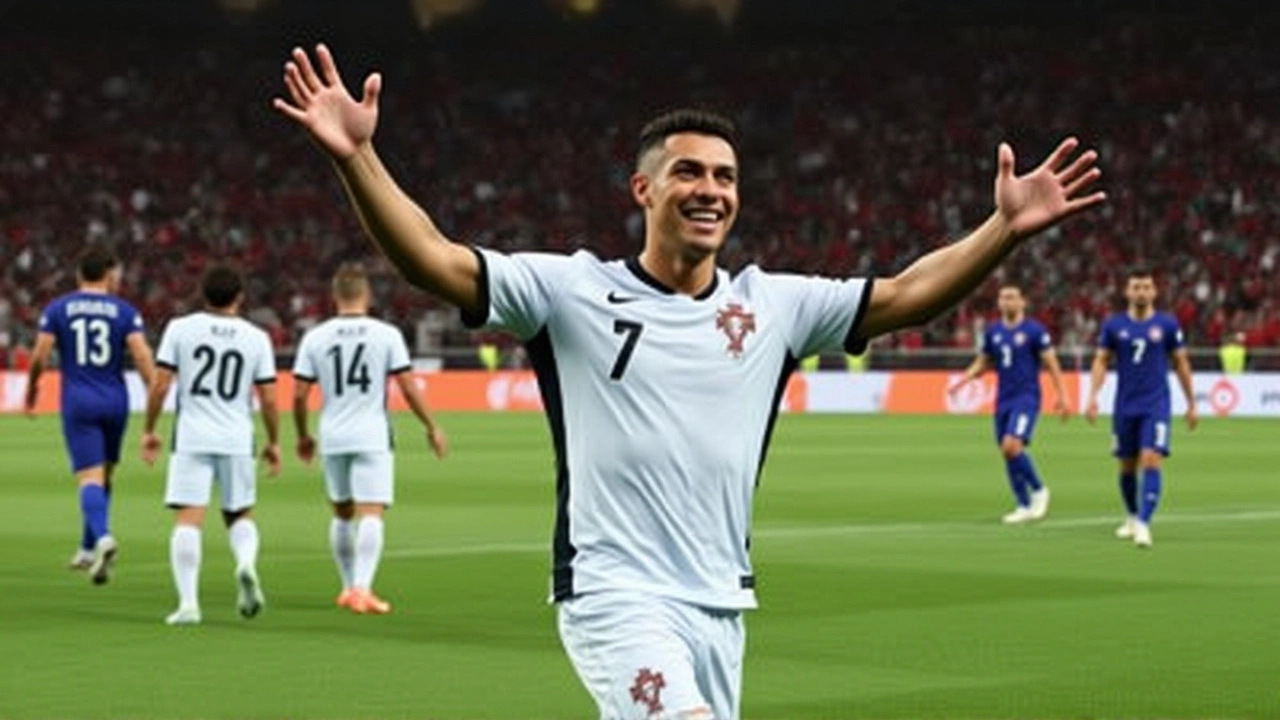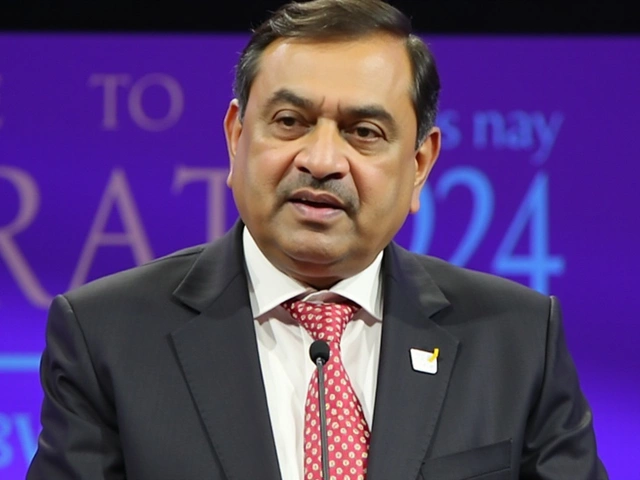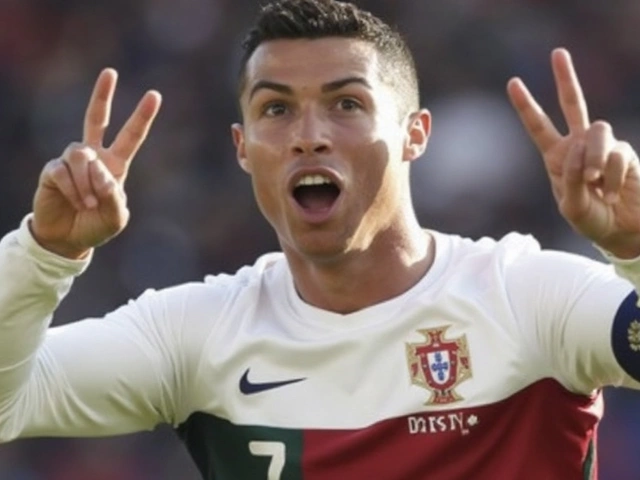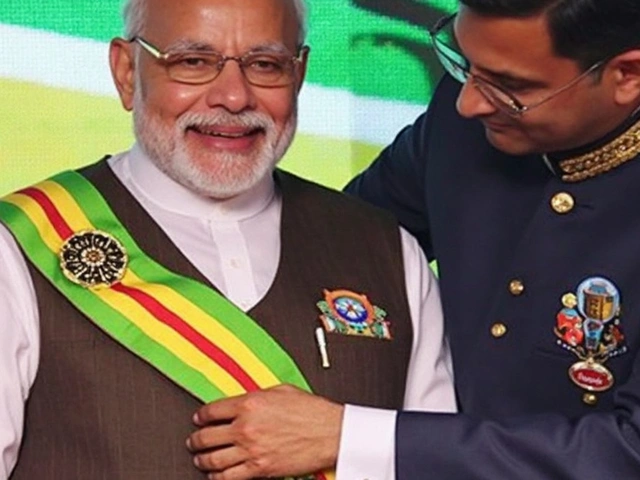Portugal’s dramatic 5-2 extra-time win over Denmark on March 23, 2025, at Estádio da Luz wasn’t just a comeback—it was a masterclass in resilience. Despite missing an early penalty and watching most of extra time from the bench, Cristiano Ronaldo still lifted a nation as Portugal overturned a 1-0 deficit from the first leg to win 5-3 on aggregate and advance to the UEFA Nations League 2024-25 semi-finals. The win sets up a showdown with Germany, who edged Italy 5-4 on aggregate in their own quarter-final. What unfolded in Lisbon wasn’t just football—it was theater, with twists no scriptwriter would dare invent.
From Heartbreak to Heroics: The Second Leg Unfolds
The match began with a shock: Ronaldo, the man who’d scored 122 international goals, stepped up for a penalty in the 3rd minute after Danish defender Patrick Dorgu bundled him over. He sent it wide. The crowd gasped. But Portugal didn’t flinch. In the 38th minute, a Ronaldo corner curled in, and Joachim Andersen—trying to clear—headed it into his own net. 1-0 Portugal. The stadium erupted. Denmark, who’d won the first leg 1-0 thanks to Rasmus Højlund’s 78th-minute strike in Copenhagen, weren’t done.
Denmark equalized in the 56th minute through Rasmus Kristensen, rising above Portugal’s defense to head home another corner. Then, in the 67th minute, Ronaldo pounced on a loose ball near the six-yard box and slotted it past Kasper Schmeichel. 2-1 Portugal. But Denmark, clinging to their aggregate lead, struck again in the 76th minute. Christian Eriksen, calm as ever, curled a left-footed beauty into the top corner. 2-2 on the night. 2-1 Denmark on aggregate. The Portuguese fans fell silent. Denmark, playing without fullback Joakim Maehle—who’d left camp for the birth of his child—were suddenly smelling blood.
The Substitute Who Became Legend
Then came Francisco Trincão. The 24-year-old winger, brought on in the 70th minute, changed everything. In the 86th minute, he cut inside from the left, danced past two defenders, and fired low past Schmeichel. 3-2 Portugal on the night. 3-3 on aggregate. Extra time. The noise was deafening. Then, just five minutes later, Trincão did it again. A perfect through ball from Gonçalo Ramos found him alone in the box. He didn’t blast it. He clipped it. A delicate, floating finish over Schmeichel’s outstretched hand. 4-2. The stadium had gone from despair to delirium in under 90 seconds.
Denmark’s legs were heavy. Portugal’s energy, fueled by the crowd and the ghosts of past collapses, was relentless. In the 98th minute, Ramos—fresh off his own brace in the group stage—finished off a counterattack with a cool finish. 5-2. The aggregate was sealed. Portugal, who’d gone unbeaten in six group matches (4W, 2D, 0L, +8 GD, 14 points), had done the impossible. Denmark, despite their gritty 2-2-2 record (7 goals for, 5 against, 8 points), had no answer in the final half-hour.
What Went Wrong for Denmark?
"We were feeling good and defending well," said Patrick Dorgu after the match. "It [Trincão’s 86th-minute goal] came out of nowhere, and then they carried that momentum on. We looked more tired than them at the end. We are disappointed that we did not advance—that is the feeling we all have."
The absence of Joakim Maehle was felt. His pace and overlapping runs had been key in the first leg. Dorgu, his replacement, was solid but lacked the same attacking threat. Denmark’s midfield, anchored by Christian Nørgaard and Christian Eriksen, controlled large stretches—but couldn’t withstand Portugal’s relentless pressing after the 80th minute. Fatigue, perhaps, was the real enemy.
Portugal’s Quiet Captain
Ronaldo, 39, didn’t score in extra time. He didn’t even play the final 20 minutes. But his presence was everything. He screamed instructions. He clapped fans into a frenzy. He embraced every substitute who came on. He didn’t need the ball to lead. He didn’t need the goals to inspire. His aura, his will, his refusal to accept defeat—those were the weapons that carried Portugal through. He’s no longer the fastest, the strongest, or even the most consistent. But he remains the most dangerous man in the room.
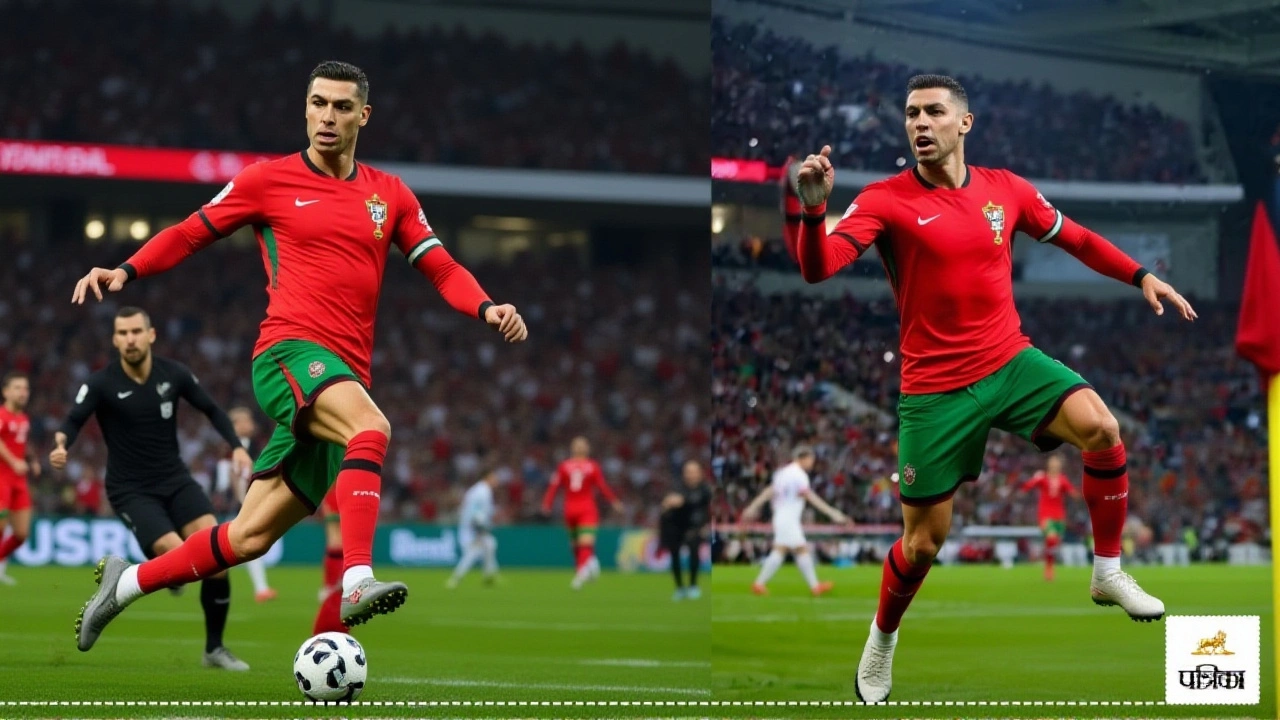
What’s Next? Portugal vs. Germany
Portugal now advances to face Germany in the semi-finals. Germany, who beat Italy 5-4 on aggregate after a wild 3-3 draw in Munich and a 2-1 win in Rome, are a team in transition. Young stars like Jamal Musiala and Florian Wirtz are stepping up, but their defense remains leaky. Portugal’s attack—led by Gonçalo Ramos, Rafael Leão, and now Trincão—is firing. The semi-final, likely to be played in early June, will be a clash of styles: Portugal’s counter-attacking precision versus Germany’s high-octane buildup.
Behind the Numbers
- Portugal: 6 group matches, 14 points, 13 goals scored, 5 conceded
- Denmark: 6 group matches, 8 points, 7 goals scored, 5 conceded
- Trincão: 2 goals in 20 minutes of play—only the third substitute to score twice in a Nations League knockout match
- Ronaldo: 1 goal, 1 missed penalty, 117th international goal in his career
- Denmark’s away record in Nations League knockouts since 2021: 1 win, 4 losses
Frequently Asked Questions
How did Portugal overcome a 1-0 deficit from the first leg?
Portugal turned the tie around through relentless pressure and two crucial substitute goals from Francisco Trincão in the 86th and 91st minutes of the second leg. Despite trailing 2-1 on aggregate after Christian Eriksen’s 76th-minute goal, Trincão’s equalizer forced extra time, and his second goal gave Portugal the lead on aggregate. Gonçalo Ramos sealed it with the fifth goal, completing a stunning 5-2 win on the night and 5-3 on aggregate.
Why was Joakim Maehle absent for Denmark’s second leg?
Fullback Joakim Maehle left Denmark’s squad to attend the birth of his child, a personal decision the Danish Football Union fully supported. Patrick Dorgu replaced him at right-back, but Denmark lost the attacking width and defensive stability Maehle provided, especially in transition—a factor that contributed to Portugal’s late surge.
What does this mean for Cristiano Ronaldo’s international career?
Despite missing a penalty and sitting out extra time, Ronaldo’s leadership and presence were pivotal. This win marks his 117th international goal and his 10th major tournament semifinal appearance. At 39, he’s no longer the focal point, but his influence on younger players and his ability to elevate the team under pressure suggest he may play on through the 2026 World Cup.
How has Portugal’s performance changed since the 2022 World Cup?
After a disappointing group-stage exit in Qatar, Portugal has rebuilt around a younger core. Players like Gonçalo Ramos, Rafael Leão, and Francisco Trincão have stepped up, while the midfield has become more dynamic. Portugal now scores more freely and defends with greater cohesion, going unbeaten in six group matches in this Nations League campaign—unlike their shaky 2022 run.
What’s the significance of Germany being Portugal’s next opponent?
Germany and Portugal have met in five major tournament knockout games since 2000, with Germany winning three—including the 2016 Euro semifinal. This time, Germany’s shaky defense could be exploited by Portugal’s pace and movement. If Portugal wins, they’ll be heavy favorites for the final. A loss would mean Germany’s resurgence under Julian Nagelsmann is officially complete.
Is this the most dramatic Nations League comeback ever?
Yes. No team has ever overturned a 1-0 aggregate deficit in a Nations League quarter-final second leg to win by a 3-goal margin in extra time. Trincão’s two goals in 5 minutes are the fastest brace by a substitute in knockout history for the competition. The comeback is now officially the most dramatic in Nations League history.
